Hailing from Lansing, Michigan, Film Connection mentor Matt Martyn owns Ahptic Film & Digital, a full-service film production company whose reputation for quality has enabled him to work with such notable clients as Nelly Furtado and Miley Cyrus, major networks like CNBC and MTV, and a slew of notable corporate clients (view his company reel here). It didn’t start out that way, though: Matt openly admits that in the early days his lack of professional training caused him to learn more from his mistakes than his successes (which enables him to steer his apprentices away from those mistakes!). Despite his impressive resume, Matt tends to downplay the notoriety of his clients, choosing to focus more on the quality of the work itself. In a recent interview with RRFC, Matt talked with us a bit about those early beginnings, how his company’s approach has enabled them to change with the times, how he deals with clients, and how he involves his apprentices in the process.

Avid Finishing Suite – Ahptic Film & Digital
Well, I never knew what I wanted to do my entire academic career. All through high school and college, I had no direction or focus whatsoever. And then my fifth year of college, my victory lap, so to speak, I got the idea to make a movie. So I basically wrote a script, learned how to use the equipment—because that was unrelated to my major, I needed to basically start from scratch. So yeah, I learned how to use the equipment and it took me two years, but I made a feature length movie with public access equipment. So I kind of learned by doing.
RRFC: It’s sort of a tall order, though. It’s not like you started off with a short movie, you went for a full feature, huh?
Matt: Right, which many would advise against it and I would discourage. There were plenty of reasons to not do it the way that I did, and there were lots of elements of the feature that suffered because of it…Even though I took it very seriously, it really was more of a student film and there were major compromises with acting, the actors, and production quality given the scale of that. [But] that’s one way to learn, you know?
RRFC: Do you think the lack of knowing essentially “the rules” allowed you to do things in like a guerilla sort of way, without anyone saying you can’t do it that way?
Matt: It’s nice to just go out and do it and not wonder or wait for years as to the ideal approach. At the same time, the flipside of that is that you are doing something that was a compromise. The setting wasn’t right or things weren’t in place, but you filmed it anyway, and you go back and look and you know what that scene could have been. So there’s two sides of it.
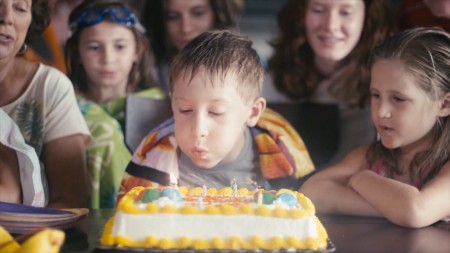
Shot from Ahptic Film & Digital reel 2015
Well, we service clients all over the Midwest. We have clients now in all the states, other surrounding states. But Michigan, it really caused us to be diverse with our clients. Back when we were starting in the 90’s people were encouraging us to be very specialized, to basically do one thing and hone in on that. But we chose to do the other route, which is not only to do one specific commercial, but to do all kinds of different commercials across the spectrum. And then in addition to that, things like music videos, television shows, feature films, and any moving visuals.
RRFC: Does that allow you to kind of pivot back and forth in and out of different marketing trends, whatever is popular at the time?
Matt: Yeah, and one example would be, just generally, the 30-second commercial isn’t as strong as much of a force as it used to be, let’s say 20 years ago. But really, that’s been a seamless transition for us. It’s a detail as to whether something is going to go to broadcast or if it’s going to go, let’s say as an introductory video to be played on their website, or on a Jumbotron, or whatever it might be. Those really are details for us, so it’s good to be able to wear those different hats.
RRFC: Now that a lot of shows are becoming Internet only, has that changed the way that you make commercials for certain videos or internet series, things like that?
Matt: It does. It changes our approach. As a whole, it’s not too much of a different animal. But yeah, of course, it’s nice not being confined to that 30-second world.
RRFC: The more you do stuff for clients, is it easier to sort of let things go from like an artistic vision when you know it’s for a client? When is it time to sort of say, “Okay, it’s not what I would do, but this is what the client wants.”?

Shot from Ahptic Film & Digital reel 2015
It’s important to give the client the respect of knowing what they want, [but] letting them know what your opinion is and speaking your piece. And then basically the decision is theirs to make from there. Yeah, there’s times where a client, if you feel like they’re making something to the detriment of the project, it’s obviously important to convey that. And if it’s really a big mistake, we’ll make sure that that message gets through. But ultimately, yeah, it’s their decision and they have their own vision and so that ultimately is the final word. The more that we do this, the more that we find the middle ground and the balance between our relationship with the clients.
RRFC: Whenever you come up with material for marketing purposes for a particular company, does it ever inspire you to go about marketing yourselves? Kind of bring in new accounts?
Matt: Yeah, we take all of those, all those different projects through the years and when we’re building our reel they all become building blocks for that, which is always evolving…Anytime we get a new exciting client, like when we first did the Nelly Furtado video or Miley Cyrus, it’s always great to be able to follow up with people and let them know what exciting things our company’s been up to since talking last.
RRFC: When you get to work with these big artists, do you get to enjoy it in the moment? Or are you already thinking like, two or five steps down the road, like the next production? Do you ever stop and smell the roses?
Matt: Yeah, a little bit. It adds to the excitement of it. It’s so overwhelming on so many levels that there is a degree of putting out fires at the time and getting things done and making sure that everything is the best it could possibly be. But I think it’s a general excitement and the energy ultimately is going into, just, it’s kind of a whirlwind of emotions and experience that goes into making that the best it could be. And it’s always in the interest of making the best product. And that’s part of the excitement, is making it the best it can be.
RRFC: Do you ever get to have your apprentices on some of these music video shoots and things like that?
Matt: Yeah, we like to have involved apprentices as much as possible…Any chance just to see how a professional set works is an exciting thing. We leave that door open for any of our protégés or people that are involved with the program.
RRFC: What do you like about the aspect of the mentor and apprentice relationship?
Matt: I think that being able to navigate and talk with us personally and get feedback directly is really an intangible strength. And I think for some of these apprentices that don’t know exactly what direction within the industry that they want to go, that that can be invaluable. To have that feedback and to help find what really appeals to them, what really interests them, and to be able to potentially wear those different hats or at least get very close to the people doing those jobs on set or in post.

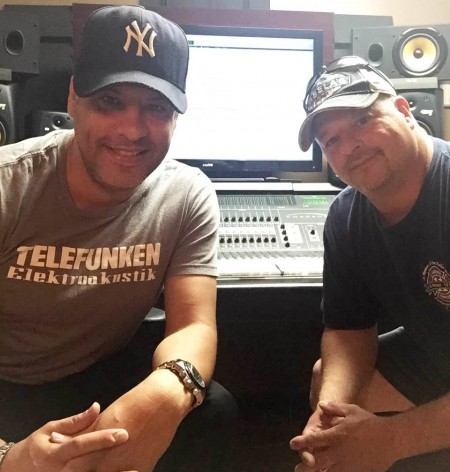
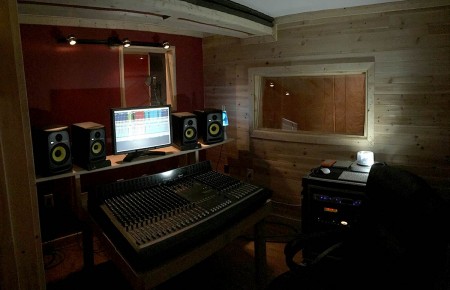
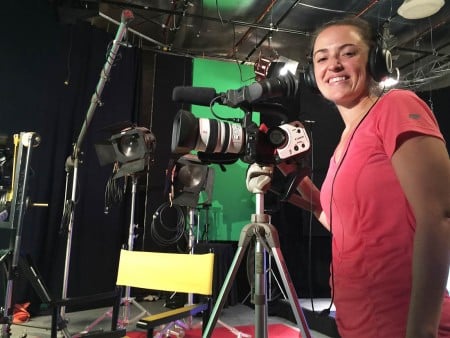
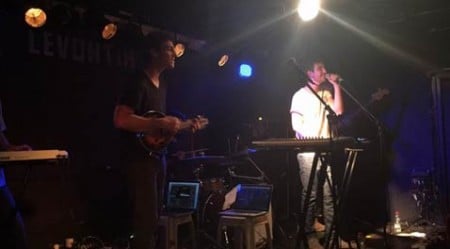
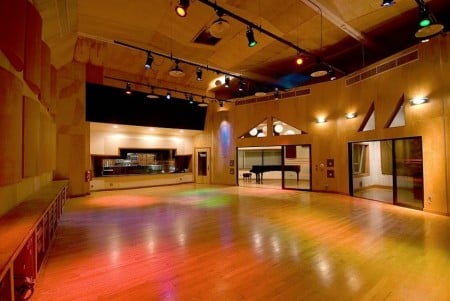




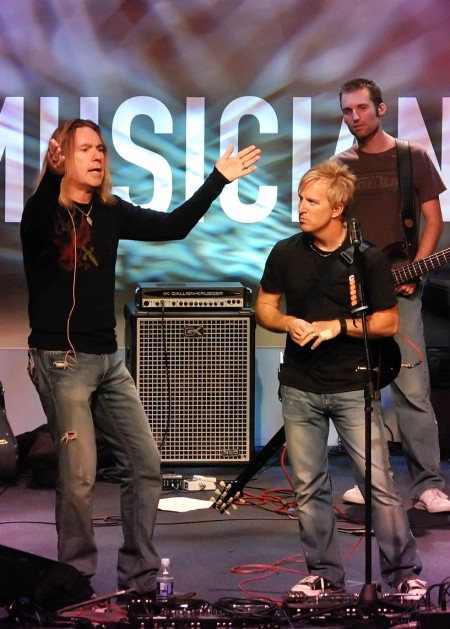
 Included are two full days of fun and enlightening instruction and a chance to play for music industry pros at the evening Showcase!
We’re happy to offer this intensive 2-Day Live Performance Bootcamp for only $299. Seating is limited so act quickly!
**Hotel arrangements, lodging, food and travel are not included.
Included are two full days of fun and enlightening instruction and a chance to play for music industry pros at the evening Showcase!
We’re happy to offer this intensive 2-Day Live Performance Bootcamp for only $299. Seating is limited so act quickly!
**Hotel arrangements, lodging, food and travel are not included.

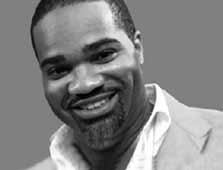 “When I heard about CASA Schools’s approach to culinary education I was blown away. I just wished that this sort of thing was available before I spent $50,000 for culinary school! They promised me a management position as soon as I graduated. I found out that that was a lie. On-the-job experience is the only way to go. The use of the culinary techniques and cooking methods day in and day out, from one scenario to the next is the best way to learn. Doing one recipe a day and paying over $200 a day is bull…”
— Troy Artis , Owner/ Operator of Chef Troy Personal Chef and Catering Services, Los Angeles, CA
“When I heard about CASA Schools’s approach to culinary education I was blown away. I just wished that this sort of thing was available before I spent $50,000 for culinary school! They promised me a management position as soon as I graduated. I found out that that was a lie. On-the-job experience is the only way to go. The use of the culinary techniques and cooking methods day in and day out, from one scenario to the next is the best way to learn. Doing one recipe a day and paying over $200 a day is bull…”
— Troy Artis , Owner/ Operator of Chef Troy Personal Chef and Catering Services, Los Angeles, CA



